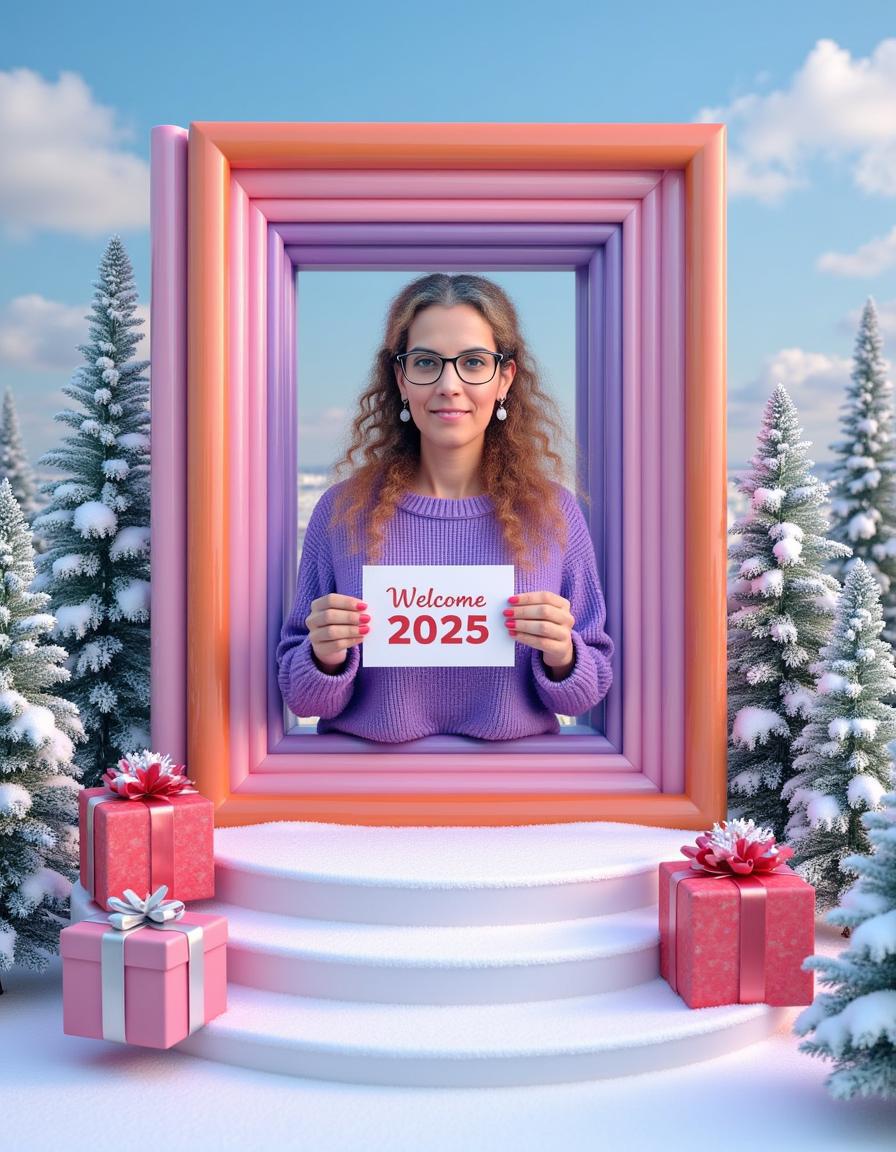
When I look back at this past year through the lens of artificial intelligence, it feels like it flew by in an instant - especially given the breakneck pace of this field. What was “new” a week ago already feels like old news today.
Still, we can’t ignore some remarkable milestones we saw this year:
A Leap Forward in Image Quality
AI image-generation models reached levels of realism that can make us wonder if a photo was taken by a camera or produced by a neural network. We’ve seen a rising trend of people training models on their own pictures, creating personalized images of themselves—or even “trying on” virtual outfits with AI.
Improvements in Video Models
Video platforms like Runway, Hailou, and Pika have made impressive strides, each excelling in certain areas. There’s still plenty of room to grow, yet it’s fascinating to see how AI-generated or AI-edited videos are becoming part of our daily life—ranging from quick animations and short-form content to major media companies experimenting with AI-based commercials.
AI Agents
In 2024, we got our first real taste of autonomous AI agents that manage tasks and streamline workflows. They can already handle competitive research or process data without much human intervention, and we’re only at the beginning of this revolution.
Robots in Our Daily Lives
Heard about restaurants in China where robots serve your meals? Or Gary The AI Robot, who assists as a sort of nurse’s aide in hospitals? These aren’t just tech demos anymore—this is genuine reality unfolding around us.
No-Code/Low-Code Development Platforms
We’re seeing more platforms that can spin up a product concept, often with minimal coding knowledge required. Chatbots can help write significant portions of code, and platforms like Cursor, Lovable, and Bolt let you build a basic product just by entering prompts (though some technical understanding is still helpful).
So, What Are the Big AI Trends for 2025?
Alongside improvements from major players—OpenAI, Google, Anthropic, Meta—and the rise of smaller competitors, we’ll witness AI take on more end-to-end tasks with higher quality. Here are a few areas I’m particularly excited about:
1. Deepening the Realm of AI Agents
This area became hot in 2024, and we’ll see it expand in 2025. Instead of handling a single task, AI agents will get more “job-like” roles, proactively managing entire sequences of actions. Picture a virtual assistant that gets a business goal, processes the data, performs analysis, builds a plan, and executes it across your various systems.
2. AGI – The Vision for General Intelligence
Artificial General Intelligence aspires to solve problems across multiple domains without specialized training for each one. In 2025, we can expect to see models moving closer to multidisciplinary capabilities, with significant improvements in continuous learning and multimodality.
3. Breakthroughs in AI Video
More tools will help bridge the gap between “experimental” attempts and professional-grade results. Mastering the art of prompting will allow media companies—and even smaller creators—to generate entire campaigns without traditional photoshoots or actors. Imagine an entire marketing video crafted by AI, no camera crew needed.
4. Smart Integrations
We’ll see progress in tools that combine multiple AI capabilities so we won’t need to say, “I had to create this video using five different apps.” My hope is that we’ll see more unified solutions that save us time and let us focus on the creative part, rather than juggling dozens of interfaces.
5. Robots
Robots will continue to take on more routine tasks, especially in industries and public spaces - but we’re also seeing early hints of home-use robots. Who knows, maybe this year we’ll finally solve the laundry problem at a reasonable price?
As you think about the new year, I invite you to reflect on how you’d like AI to fit into your professional life in 2025.
Thinking about integrating AI into your business, or curious how to use these tools yourself?
I'd love to chat! Feel free to drop me a line at dalit@welift.ai, and let's explore your next steps together.